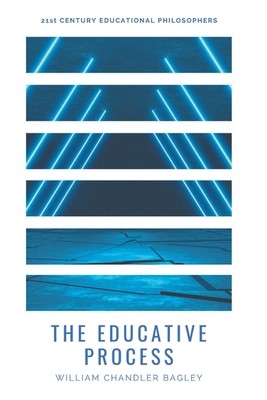
- We will send in 10–14 business days.
- Author: William Chandler Bagley
- Publisher: MJP Publisher
- ISBN-10: 935528196X
- ISBN-13: 9789355281968
- Format: 15.2 x 22.9 x 2 cm, minkšti viršeliai
- Language: English
- SAVE -10% with code: EXTRA
Reviews
Description
Purchase of this book includes free trial access to www.million-books.com where you can read more than a million books for free. This is an OCR edition with typos. Excerpt from book: CHAPTER H The Function Of The School i.. If the tentative definition of education with which the last chapter closed is valid, it follows that the acquisition of any experience whatsoever that serves to modify future adjustment is an educative process. One is perhaps apt to think of education as confined to the school, or, at most, to the school and the home. This is manifestly a narrow view, and one that has done much to create in the popular mind an antithesis between education and life. Throughout the years of childhood, at least, there is very little that the individual does that is without some effect upon his future adjustment. It is therefore well to divide educational forces into two classes: (a) informal education, embodying those modifying influences to which every individual is subjected in varying degrees, and (b) formal education, embodying the modifying influences the control of which is consciously assumed either by the individual himself or by some educative agency, such as the school, the home, or the church. (a) Informal education is symbolized by the common saying, Experience is the best teacher. It wouldappear from the previous discussion that this statement is a palpable truism, for when education is reduced to its lowest terms, experience is seen to be the only teacher. What the phrase is intended to convey is this: experiences that are gained incidentally in the course of the individual life are much more effective in modifying adjustment than experiences gained formally for this express purpose. Stated in this way, the proposition involves an assumption that schools and teachers are inferior in efficiency to the educative forces of practical life. That this proposition is generally valid can scarcely be doubted. The burnt child dreads the fire mu...
EXTRA 10 % discount with code: EXTRA
The promotion ends in 23d.19:14:30
The discount code is valid when purchasing from 10 €. Discounts do not stack.
- Author: William Chandler Bagley
- Publisher: MJP Publisher
- ISBN-10: 935528196X
- ISBN-13: 9789355281968
- Format: 15.2 x 22.9 x 2 cm, minkšti viršeliai
- Language: English English
Purchase of this book includes free trial access to www.million-books.com where you can read more than a million books for free. This is an OCR edition with typos. Excerpt from book: CHAPTER H The Function Of The School i.. If the tentative definition of education with which the last chapter closed is valid, it follows that the acquisition of any experience whatsoever that serves to modify future adjustment is an educative process. One is perhaps apt to think of education as confined to the school, or, at most, to the school and the home. This is manifestly a narrow view, and one that has done much to create in the popular mind an antithesis between education and life. Throughout the years of childhood, at least, there is very little that the individual does that is without some effect upon his future adjustment. It is therefore well to divide educational forces into two classes: (a) informal education, embodying those modifying influences to which every individual is subjected in varying degrees, and (b) formal education, embodying the modifying influences the control of which is consciously assumed either by the individual himself or by some educative agency, such as the school, the home, or the church. (a) Informal education is symbolized by the common saying, Experience is the best teacher. It wouldappear from the previous discussion that this statement is a palpable truism, for when education is reduced to its lowest terms, experience is seen to be the only teacher. What the phrase is intended to convey is this: experiences that are gained incidentally in the course of the individual life are much more effective in modifying adjustment than experiences gained formally for this express purpose. Stated in this way, the proposition involves an assumption that schools and teachers are inferior in efficiency to the educative forces of practical life. That this proposition is generally valid can scarcely be doubted. The burnt child dreads the fire mu...


Reviews